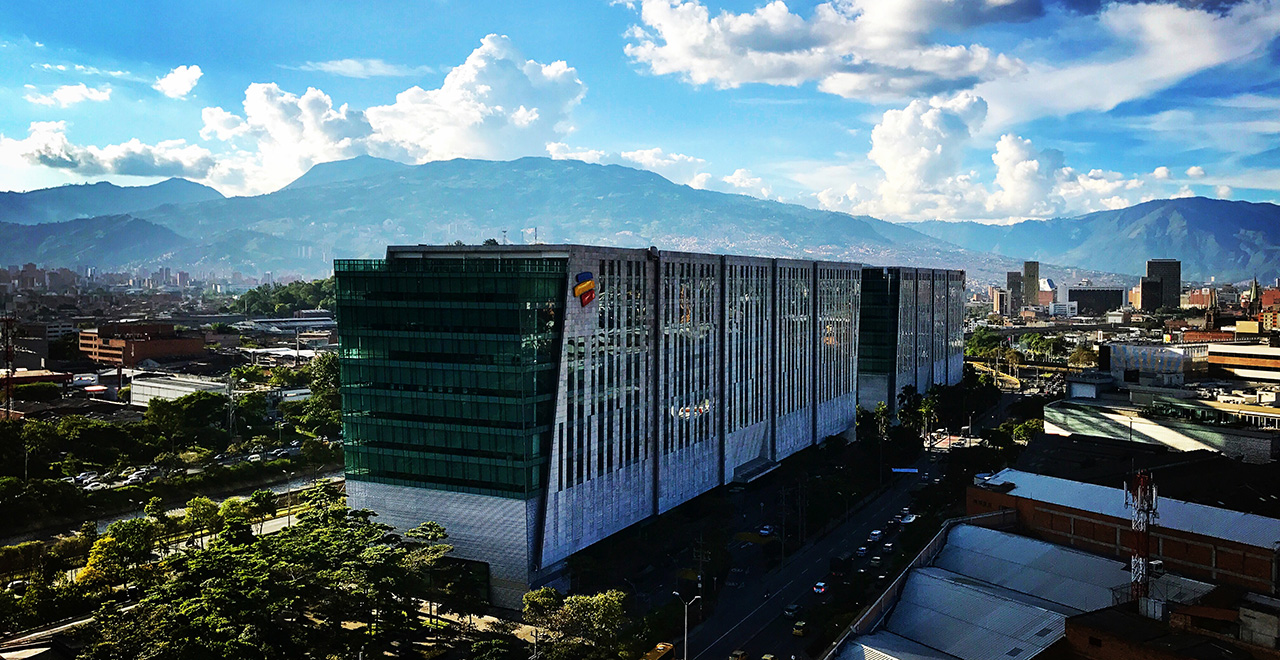
Salary Structure in Colombia
You are planning to make the savvy choice of expanding your business into Colombia, a vibrant and dynamic country. Maybe you are thinking of hiring in Colombia or using a PEO / EOR service. Now, you’ve likely begun the process of looking for new talents to hire, and you’re wondering: what’s the salary structure like in Colombia? How does it work? Not to worry, we’ve got you covered. In this article, we will guide you through the ins and outs of the Colombian salary system. Before we dive in, let’s cover some basics:
- Minimum Salary: Colombia has a legal minimum wage, which is adjusted annually.
- Compensation: A salary in Colombia typically includes basic pay, benefits and social security contributions. It’s more than just the monthly wage.
- Agreements: Employment agreements can be for a fixed term, for an undefined period, for the duration of a specific task, or for occasional, accidental, or transitory work.
- Work Week: The standard work week in Colombia is actually 47 hours, often spread across six days. However, the government is now slowly reducing the number of working hours per week. The number of hours will eventually be reduced to 42 hours by July 2026.
- Payout: Salaries in Colombia are typically paid on a monthly basis.
Here, we will delve into each aspect of the Colombian salary system, providing the necessary guidelines. From the factors affecting a person’s salary to explaining what bonuses and benefits can be expected, we waste no time in wrapping up the complexities and presenting to you the useful, relevant information. So, are you ready to learn about hiring in Colombia? Let’s get started!
Factors Influencing Salaries in Colombia
Firstly, there are multiple elements influencing salaries in Colombia, and understanding these will help you make informed decisions. So, what are these factors?
- Education: Individuals with higher education and relevant skills often command higher salaries.
- Experience: The more work experience, the higher the salary in most cases. This is especially prevalent in sectors where specialized knowledge is a requirement.
- Location: Geographical location plays a key role. Cities like Bogota and Medellin, being commercial and business hubs, often offer higher salaries than smaller towns and rural areas.
- Role & Responsibilities: The nature and complexity of the job role also determine the salary.
- Industry: Salaries also vary widely depending on the industry. For instance, sectors like IT, Finance and Oil & Gas generally offer higher salaries.
Understanding Colombian Salaries: The Basic Concepts
Now, how does the actual salary structure work in Colombia?
The remuneration in Colombia is often referred to as a ‘salary’, composed of a base salary and additional benefits. Employees are usually paid monthly and the compensation is two-fold:
- Direct Remuneration: This is the fixed salary set in the employment contract which is paid monthly. It’s based on a legally mandated minimum wage, which is updated each year.
- Indirect Remuneration: This refers to benefits and bonuses. Some of them are mandatory by law such as transportation allowance for those earning less than two times the minimum wage, while others, like health insurance and pension contributions, are optional based on company policy. These benefits can be a significant part of employee compensation, so remember to factor them into your overall payroll budget.
Legal benefits & bonuses in Colombia
What exactly are the legal benefits and bonuses that employers need to keep in mind when offering a job in Colombia?
Aside from the nominal salary, Colombian law stipulates several mandatory benefits for employees. Here’s a rundown of these legislated benefits:
| Benefit | Description |
|---|---|
| Vacation Pay | Workers are entitled to 15 consecutive days of paid vacation each year. |
| Severance Pay | When a contract is terminated, employers are obligated to pay an amount equivalent to a month’s salary for each year of service. |
| Severance Interest | This is paid on the above severance at a rate of 12% per year. |
| Year-End Bonus | In Colombia, workers receive an annual bonus equivalent to a month’s salary, paid in two installments in June and December. This is called Prima or ‘thirteenth salary’. |
Some companies in Colombia also provide additional benefits such as health insurance, transportation allowance, and meal vouchers.
These benefits are key components to consider when structuring a salary offer in Colombia. Now that you’ve got the basics, you’re well on your way to crafting a comprehensive and competitive salary package for your future Colombian employees.
Colombian Salary Negotiation Tips
Negotiating a salary in Colombia, just like in any other part of the world, requires some level of tact, knowledge, and confidence. Understanding the basic guidelines can make this process a lot smoother, both for employees and employers. Here are a few tips to consider:
- Research and Understand the Market: Knowledge is power when it comes to salary negotiations. You need to understand the standard salaries for similar roles and industries in Colombia. This can provide a baseline from which to start your negotiations.
- Consider the Total Package: In Colombia, the salary is just a part of the total remuneration. Companies often offer benefits such as healthcare, transport allowance, and other bonuses. When negotiating, consider the entire package, not just the basic salary.
- Demonstrate Value: Employees need to show their potential employer the worth they bring to the table. For employers, it’s important to consider the value of the prospective worker’s knowledge, skills, and experience when setting their salary.
- Understand Legal Obligations: Employers in Colombia are required by law to provide certain benefits, including shareholding on profits, severance pay, and annual transportation allowance. It’s crucial for both parties to understand these legal obligations.
- Selective Disclosure: During negotiations, be selective about what you share. Employees might want to avoid sharing their previous salary, as it might limit their negotiation range. On the other hand, employers should avoid disclosing their budget for the position.
The goal of negotiation is to reach a mutual agreement that satisfies both parties. It’s a delicate process that requires empathy, understanding, and patience.
Finally, while these are just the basics, remember that attracting top talent goes beyond merely meeting these legal requirements. It’s crucial to provide competitive salaries and benefits, tailored to the employees’ needs and expectations. With this knowledge, you are now ready to construct an appealing and compliant compensation package for your prospective Colombian employees.
Download our White Paper about salary structure in Colombia
To get more information and details about the salar structure in Colombia, download our White paper:
